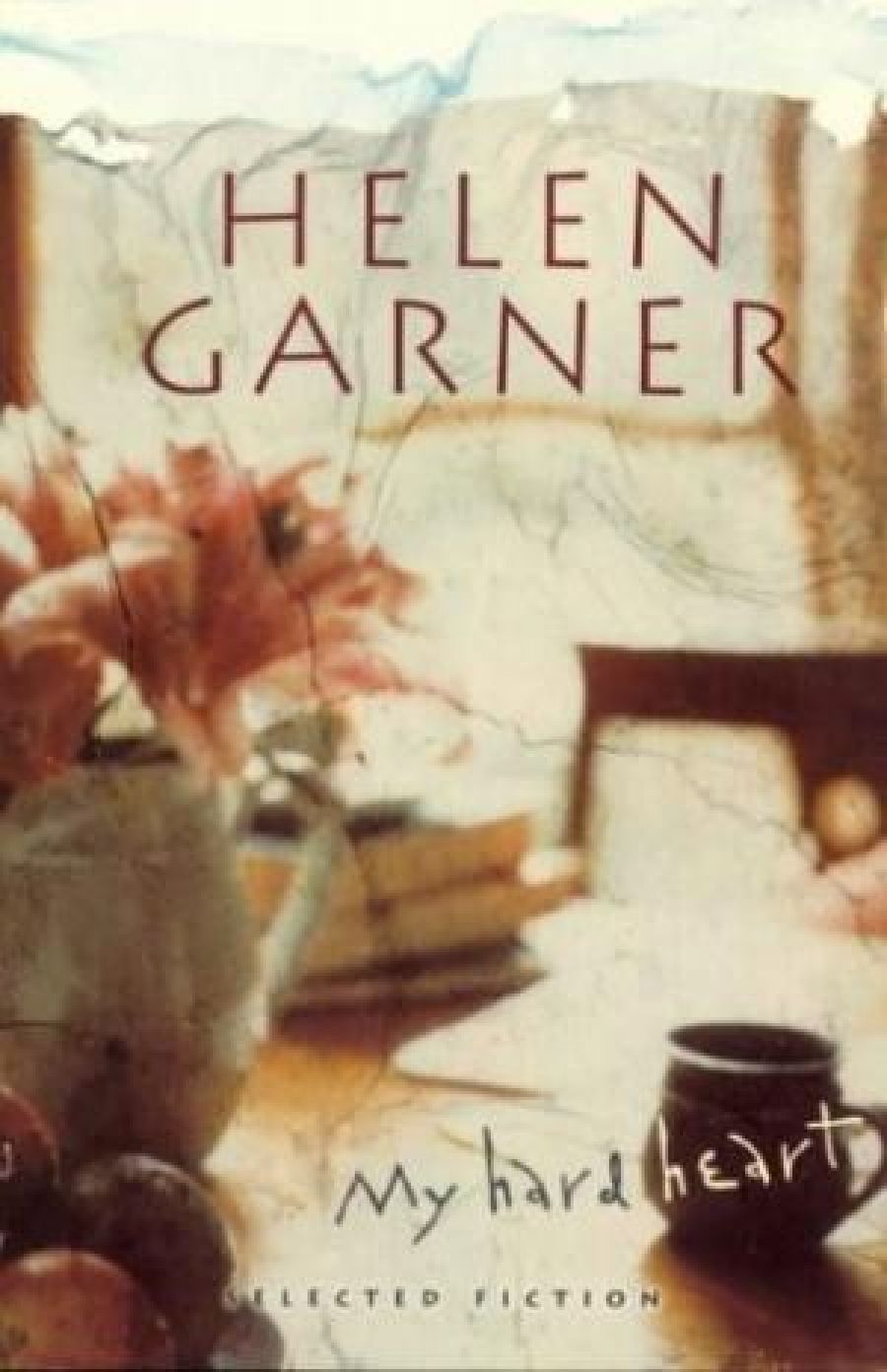
- Free Article: No
- Contents Category: Selected Writing
- Review Article: Yes
- Online Only: No
- Custom Highlight Text:
What do we talk about when we talk about Helen Garner? About her writing, that is, about such a consummate novella as The Children’s Bach, about extraordinary stories such as ‘A Vigil’, in Cosmo Cosmolino, about the eponymous ‘Postcards from Surfers’, and a dozen others? We talk about domestic realism, we talk about fiction that encompasses not merely the present supposedly self-obsessed Baby Boomer generation but children and grandparents also, we talk about discipline, control, and the assurance that more is less.
- Book 1 Title: My Hard Heart
- Book 1 Subtitle: Selected fiction
- Book 1 Biblio: Viking, $22.95 pb
Such modesty is not merely textual, it is epistemological and metaphysical as well. Thus, perhaps, the uncertainties of the third, final section of Cosmo Cosmolino with its yearnings for a world elsewhere of which it cannot convince us that it is certain. Of what distinguished company do we talk, then, when we talk of Helen Garner? Of the renaissance of the short story and the novella in the 1980s and 1990s; of Raymond Carver and Andre Dubus and Richard Ford and Janet Kauffman and Bobbie Ann Mason and Jayne Anne Phillips. And, a shadow presence behind all of them, Anton Chekhov who, as Dubus reminded us, ‘wants you to know what it feels like’. That is what Helen Garner wants.
Such a modest realism declines large gestures in the direction of a metaphysics of presence, but repeatedly suggests that there is something other than merely the here and now. It may be a case of the Samuel Becketts, of ‘no symbols where none intended’. Consider the ever-enlarging ripples of signification in Richard Ford’s Wildlife:
Your father said he saw a bear catch on fire. Isn’t that something? He said it had climbed a tree to get away and the fire exploded in the branches all around it. The bear jumped out completely on fire and ran away. That’s a thing to remember, isn’t it.
Compare the effect of this with the end of ‘Honour’, included in My Hard Heart, a novella concerned with a man, his former wife and child, his future wife, and the relations between the two women. The story ends with the two women on a see-saw in a children’s playground:
The child stepped back. Jenny, who was nearer the ground, gave a firm shove with one foot to send the plank in motion. It responded. It rose without haste, sweetly, to the level, steadied and stopped.
They hung in the dark, airily balancing, motionless.
Isn’t that something? Think also of the sequence in The Children’s Bach where Athena and Elizabeth are folding washing.
The two women approached the wire and unpegged the sheets. They faced each other, joined by the cloth, and raised their arms in unison, they shook the cloth and snapped it tight, they advanced and retreated until each sheet was a flat bundle in Athena’s arms. Poppy saw that they were speaking, with pauses, but she could not hear what they were saying … The fingers met formally at the high corners of the sheet. Elizabeth’s relinquished. Athena’s accepted. As they folded, as they spoke, the light left the garden.
Like Poppy, the reader cannot hear what they are saying, but can impute – yet it is no more than an imputation – that they are discussing Philip, who is passing, like washing, from Elizabeth to Athena. But, no symbols where none intended. Realism, and delicacy, is all.
The sixteen stories that constitute My Hard Heart have all been published previously, all but three of them in book form. Surely no one will resent Viking’s version of Angus & Robertson’s ‘Australian Classics’ series, especially in a publishing culture where our national epic is not so much ‘yet to be written’, to quote someone in Ulysses, but out of print – I refer to Such Is Life – as are the complete works of Gerald Murnane. In this deplorable situation, but not for this reason alone, one must welcome a selection of the writings of one of our most distinguished authors.


Comments powered by CComment